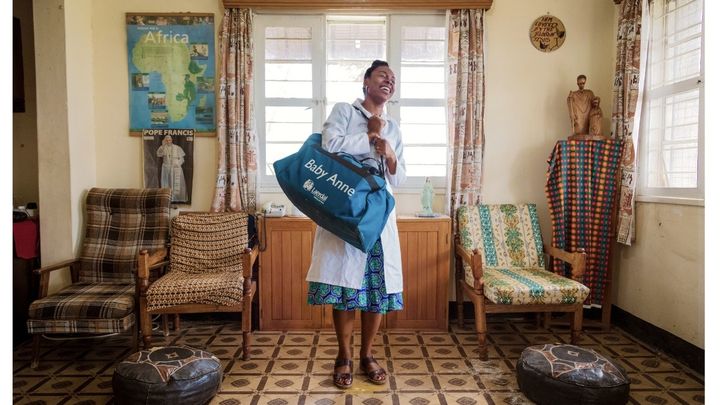
Help Isi fight maternal mortality at Harvard
WHO AM I?
My name is Isi. I’m an Obstetrician & Gynaecologist in Scotland. My life mission is to empower women and end gender inequality through improving access to education and health for women and girls.
Growing up in Nigeria and Togo, I was very aware of the inequalities caused by social and economic factors. I was particularly disturbed by the maternal mortality rate and the extreme disparity in the health of pregnant women and newborn babies despite the universality of childbirth.
My long-term goals are to be a leader and life long advocate in global women's health. I intend to achieve this through:
1) leading research which provides safe equitable reproductive healthcare in low resource settings
2) collaborating on global health partnerships which strengthen local research and clinical capacity in low resource settings.
As a big step towards achieving these goals, I successfully applied and was accepted for the competitive and prestigious Paul Farmer Global Surgical research fellowship .
This is a 24 month fellowship at the Program for Global Surgery and Social Change (PGSSC): https://www.pgssc.org/research-fellow
The PGSSC is a collaboration between Harvard teaching hospitals, Department of Global Health and Social Medicine at Harvard Medical School, Boston Children’s Hospital (BCH) and Partners In Health (PIH)
The PGSSC trains obstetricians & gynaecologists, surgeons and anaesthetists to become leaders in global health. They do this by focusing on evidence based research which informs policy, advocacy, clinical practice and leadership in low resource settings.
The 24 months of the fellowship will be spent:
1) Completing a Masters in Public Health at Harvard TH Chan University. I intend to complete an MPH practicum which focuses on interventions which address racial inequities in maternal morbidity and mortality.
2) Conducting research on the 'Variation in Caesarean section( CS) delivery in Sub Saharan Africa'. My research will be based in Uganda under supervision of my PGSSC mentor Dr A Boatin.
3) Acquiring research, business management, advocacy and policy making skills pertinent to advancing safe surgery in low resource settings
4) Developing analytical and quantitative knowledge required to evaluate the impact of sustainable and cost effective clinical practices, decisions and health interventions in LMICs
In 2018, I was awarded the Royal College of Obstetrics & Gynaecology Marcus Filshie fellowship. I worked on the Resilience in Obstetric Skills( ROS) project . ROS was a health partnership between the RCOG and maternity units in Uganda. The project aimed to improve the reproductive health outcomes of women by providing sustainable training on emergency obstetrics skills, respectful maternity care and safe referral systems.
On my return, I was invited to speak at the Westminster House of Lords about ROS and presented my research at the RCOG World Congress in 2019. 
Benefits of my Research
Research on Variation in CS delivery in sub saharan Africa will:
1) Address current research gaps on unnecessary CS in sub Saharan Africa. It will also add to the body of evidence investigating the global phenomenon of increasing CS rates worldwide.
2) Highlight areas for improvement such as: education and research aimed at improving clinical decision making around CS and increasing the safety of CS provision.
3) Provide a solid foundation of evidence to lobby and engage stake holders including health care providers, hospital directors, educational institutions and government officials, on policy changes which support safer delivery of caesarean sections, ultimately improving maternal and neonatal outcomes in LMICs.
I will use the research and experience from my MPH as a platform to introduce interventions which address racial inequities in maternal outcomes in the NHS, UK.
Relevance to COVID-19 Pandemic
Women and girls are disproportionally affected and particularly vulnerable to the increased social , political and economic disruption caused by the COVID 19 pandemic.
Understanding CS decision making in SSA will provide evidence to inform interventions that optimise CS rates and minimise the risk of excess morbidly, mortality and out of pocket expenditure for women and their babies.
Research into racial inequities in maternal health is particularly relevant to the COVID 19 pandemic which currently is highlighting long standing socioeconomic disparities in health.
Ultimately both aspects of my research will provide a platform to advocate for better maternal health care during and beyond this pandemic.
With your support and generous donation, I will be able to successfully complete my MPH and conduct impactful research and be one step closer to achieving my goal to be a force for change in global women's health.
Thank you, Isi